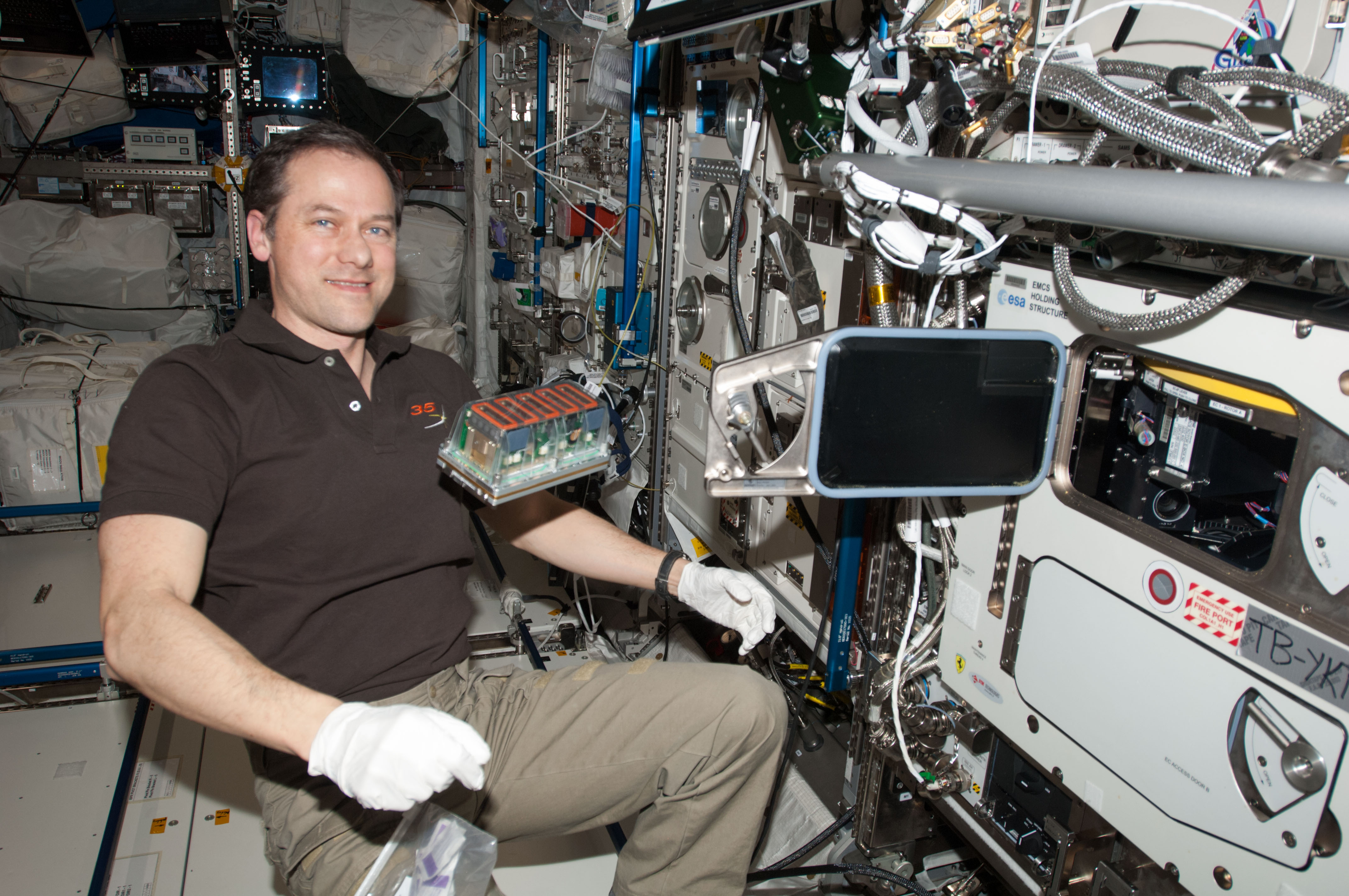
The space experiment “Seedling Growth-3”, led by Dr. Javier Medina, from CIB-CSIC, Madrid, will be shipped to the International Space Station (ISS) as a payload of the ISS resupply mission SpaceX-11, which will be launched from Cape Canaveral (Florida, USA) next 1st June 2017.
This project, which is the result of the collaboration between American and European research groups, is the third and last of a series aimed to know the effects of the absence of gravity on plant development, in order to enable the cultivation of plants of nutritional interest in the space environment as these are mandatory as a support for human space exploration and, specifically, for sustaining the presence of humans in Mars.
Although American researchers succeeded a few months ago in the growth of a lettuce on board of ISS, which was indeed snacked by astronauts on the so-called “first space salad”, the biological keys to the adaptation of plants to a weightless environment are actually unknown. Gravity is an essential factor for plant development and numerous studies have shown important alterations at the cellular and molecular level induced by microgravity. The knowledge of the biological mechanisms of adaptation is necessary to eliminate uncertainties and get a systematic, reliable and productive plant culture.
In the successive phases of the Seedling Growth project, the role of light in these adaptation mechanisms is studied, with satisfactory results up till now. The analysis of samples, performed by the group “Plant Cell Nucleolus, Proliferation & Microgravity”, led by Dr. Medina, appears to show that red light reestablishes coordination between cell growth and cell division in proliferating cells, whose disruption is an adverse effect of microgravity, and brings the gene expression program of plants grown in space near to the corresponding ground controls. These previous results will be extended and strengthened in this third phase.
[Image copyright: NASA]
Dr. Javier Medina is the head of an European Team, which includes the participation of two French laboratories. On the American side, the project is headed by Prof. John Z. Kiss, from North Carolina University, with the participation of Universities of Mississippi and Ohio. Both European and American Space Agencies (ESA and NASA) endorse the project and manage the ISS experiment. The sample analysis in our laboratory is supported by the Spanish National Program for R&D.
Finally, it is noteworthy that Seedling Growth-3 incorporates Spanish space technology. Preservation of space samples for enabling their postflight analysis on ground will be achieved by using a new piece of hardware called “FixBox” designed and manufactured by the company “Sener, S.A.”, with the financial support of ESA.
CSIC Press release: link
Press clipping:
Interview to Dr. Javier Medina, by DC Scicomm: link
“Los desayunos de TVE” 01/06/2017 (from 00:59:00)
“Telediario, 2ª edición” 01/06/2017 (from 00:41:30)
Aquí la radio - Aragón Radio (from minute 30)
La mecánica del caracol - Radio Euskadi

